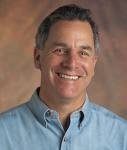In theaters this week is the new documentary, Food Inc., which offers a sobering, behind-the-scenes view of the corporate food factories providing nearly all of the food we eat.
However, the film is not all doom-and-gloom. A few heroes emerge from the documentary, including Virginia farmer Joel Salatin—who is featured on the cover of this month’s Blue Ridge Outdoors. Salatin raises pasture-fed livestock on his 500-acre farm in the Shenandoah Valley, and he only sells his meats locally. Salatin says in the film (and in his interview with Blue Ridge Outdoors) that he does not want to sell his meats in Wal-Mart—or even ship his meats beyond his bioregion—to maintain the local integrity of his farm and his commitment to locally produced food. When I saw the documentary in the theater earlier this week, the audience erupted in applause when Salatin proclaimed, “I will never sell any of my meat in a big box store.”
While Salatin is the movie’s populist hero, some have argued that the true hero of the documentary is Stonyfield Farms Yogurt CEO Gary Hirshberg. In his youth, Hirshberg was a hippie farmer, but for the past 25 years, he has been building his organic yogurt company into the country’s third-largest yogurt producer. In the film, he recalls a revelation early in his career: “You can’t always be David fighting Goliath. Sometimes you have to be Goliath.”
Today Stonyfield Farm’s organic yogurt is sold at Walmart, which Hirshberg believes accomplishes a lot more for the planet than small locavores like Salatin. “With every shipment of Stonyfield organic yogurt to Walmart, millions of tons of pesticides are kept off the Earth,” he says. And Hirshberg points out that, thanks to the efforts of Stonyfield Farm and like-minded companies, Walmart no longer sells hormone-filled milk. People, he says, are voting with their mouths.
Which model has the best chance of succeeding—corporate or local? Hirshberg or Salatin? In many ways, it’s the same, age-old argument about change: does it come from within the system, or outside the system? Salatin and Hirshberg differ in their approaches, but they share the same goal: healthy, just, and sustainable food for all.
Right now, we need them both. The fight for healthy and sustainable food needs to be waged on both fronts: reconfiguring the mass production agribusiness system while rebuilding the local farm network.
But in the long run, I believe the revival of locally-scaled sustainable farms like Salatin’s are our best hope. For most of human existence, food has been produced locally (and organically, for that matter). Only in the past 50 years have corporations turned farms into factories. And all of those factory farms utterly depend on enormous inputs of fossil fuels. A gluttonous diet of petroleum-produced food will not sustain us much longer.









